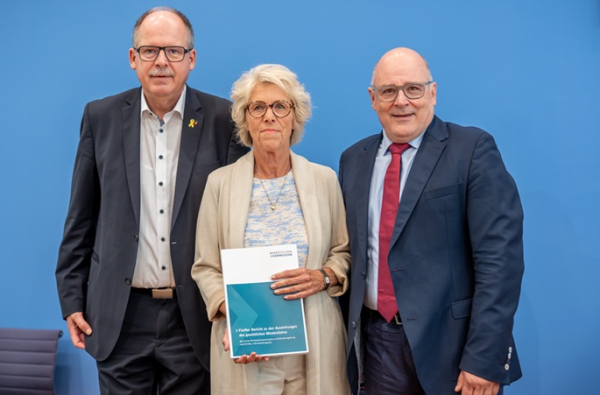
Germany's minimum wage is set to be raised from €12.82 per hour to €14.60 by 2027 in two steps, a special commission which regularly proposes adjustments to the level announced on Friday, reported dpa.
At the beginning of 2026, the legal base salary paid to employees should first be increased to €13.90, before being raised by another €0.70 a year later, the body said in Berlin.
First introduced in 2015 under a centrist government led by former chancellor Angela Merkel, the pre-tax minimum wage has been raised multiple times from its initial level of €8.50.
The Minimum Wage Commission, made up of top representatives of unions and employers as well as an independent president, votes on adjustments every two years, taking into account the growth in wages.
According to commission chair Christiane Schönefeld, this year's proposed hikes were backed unanimously.
Schönefeld described the recommendation as a practical compromise that would ensure a balance between the interests of employees and companies.
In the campaign leading up to February's federal elections, Germany's Social Democrats (SPD), now a junior partner in the new coalition government, had promised to raise the minimum wage to €15.
Commission president Schönefeld said negotiations had been difficult in light of expectations fuelled by the campaign promise.
Labour Minister Bärbel Bas, a Social Democrat, said she would implement the suggestions without changes.
"As a Social Democrat who holds collective bargaining partnership very highly, I can live with that," she said.
But not everyone in her party is happy with the proposed hikes, which are expected to be on the agenda when the SPD convenes for a national party conference in Berlin later on Friday.
The SPD labour wing distanced itself from the commission's decision, with its chair woman calling on the government to raise the minimum wage to €15.
"€15 is the minimum for a life in dignity," Cansel Kiziltepe told dpa. "Anyone who works full-time should not have to supplement their income or live in poverty in old age."
If no agreement had been struck by the independent body, the government could have stepped in to raise the minimum wage, as done by the previous administration under SPD chancellor Olaf Scholz in 2022 to fulfil a campaign pledge.
In their coalition agreement, the conservative bloc and the SPD did not commit to raise the minimum wage to a specific target, but only floated the possibility of increasing the level to €15 by 2026.
"To inform its decisions on future changes to the minimum wage, the Minimum Wage Commission will consider an overall assessment of collective wage agreement trends and 60% of the gross median wage of full-time employees," the deal states in accordance with the legal requirements guiding the body's decision-making process.
"In this way, a minimum wage of €15 is achievable in 2026."
Senior CDU representative Carsten Linnemann welcomed the proposal, telling dpa that it was important that consensus had been reached.
A legal minimum wage is considered an important tool to fight poverty.
According to official figures, 15.5% of the population – or around 13.1 million Germans – were at risk of poverty last year.
The EU defines anyone earning less than 60% of a population's median income to be at risk of poverty.
In Germany, this meant single households earning €1,378 or less per month after taxes and social security contributions in 2024.
Meanwhile employers had warned of the serious economic consequences of a significant minimum wage increase.
(By Basil Wegener and Andreas Hoenig)
- Germany
- Minimum wage
- To raise
Source: www.dailyfinland.fi
